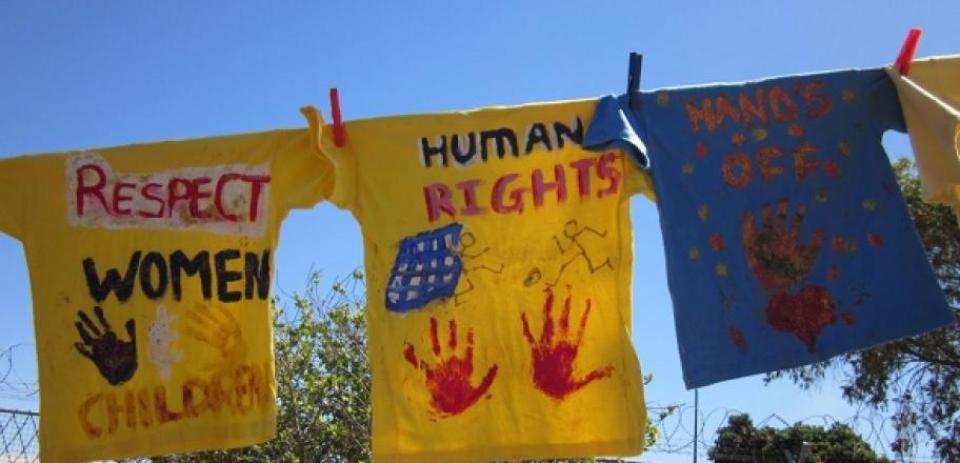
South Africa's constitution guarantees freedom of expression, and has been interpreted to include the right to community media and to creative journalistic content. However, these progressive interpretations come in the light of broadcasting, rather than the internet. Online media and its regulation in South Africa fall short of the human rights standards that South Africa has recognised under existing treaties, and under its Constitution.
It was in this framework that in November 2011, a group of eleven prominent civil society organisations, all working on human rights and communication, challenged the South African government to meet these commitments. The group (1) submitted a joint report to the United Nations Human Rights Council through the Universal Periodic Review process.
The UPR is, according to an article by Joy Liddicoat and Henrik Almstrom posted on the Association for Progressive Communications website:
[…] a process where members of the Human Rights Council take a look at the human rights record of each UN member state […]. The purpose is to gradually improve human rights by creating a constructive process in which governments are held accountable for their human rights performance [...]. The review is based on three reports; a state report, a UN summary report and a stakeholder report […].
With this definition in mind, highlights the key issues raised in the joint submission to the UPR and then looks at the recommendations and questions raised during the process.
Key issues raised in the joint submission
The joint report to the UPR was submitted on 28 November 2011. The submission focuses on freedom of expression, the right to information, freedom from censorship; freedom of the press; the right to privacy and the importance of affordable access to the internet.
There are four main sections in the report; the universal, equitable and affordable internet access; the right to privacy and regulating the interception of communications; freedom of expression and the impending restrictions and finally the access to information and the protection of whistle-blowers. In this article, it would not be possible to discuss all the issues raised in the report. Thus, for purposes of this article, I will draw out some of the issues raised in the report.
The first section focuses on the broad state of internet access in South Africa. Only 31 per cent of internet users are women, while 64 per cent are White. The major challenges highlighted are linked to issues of availability, affordability and accessibility of internet access particularly in areas outside the major centres of the country. The report points out that the costs of accessing the internet are very high while broadband infrastructure is inadequate.
This issue of access to infrastructure is made worse by the problem of access to content, once there is a connection. Little content is available in local languages.
One of the several recommendations made in relation to universal internet access is that the government of South Africa needs ‘to ensure public internet access, in spaces that are safe and accessible for all including women, the aged, children and people with disabilities is included in any policy concerning communication, social development or education.’ (2)
The importance of safe access points is particularly important for vulnerable communities, such as women seeking information about sexual health and reproductive rights, attempting to access information about rape or domestic violence, or those looking for information on sexuality. The use of public access points in these situations raises important issues about privacy.
The second issue raised in the report is the regulation of the interception of communications. Professor Jane Duncan, the Highway Africa Chair of Media and Information Society at Rhodes University notes that the Act that governs how the authorities can eavesdrop on communications has several loopholes. The loopholes create an imbalance between the right of the state to protect national security and the public's right to privacy.
Duncan says that judges who authorise eavesdropping should release more informative reports and that those who are targeted should be informed, once the eavesdropping is over, regardless of whether the interception of communication has resulted in a criminal prosecution. In one of the recommendations in the report there is a call to review the relevant legislation to protect the rights of people under surveillance. Some amendments to the Act are also suggested (see joint submission document).
In the section that discusses freedom of expression, the main concern is that the four proposed new laws are ‘likely to contradict the constitution and curtail freedom of expression.’ (3) One of the laws relates to the 'Protection of State Information'. The report notes that if passed, this Bill could affect whistle-blowers and journalists reporting on documents considered classified. These people could face up to 25 years in jail. Other proposed legislation will effectively mean political control of the media. The report recommends amendments to the first bill, and abandoning the second.
Debates on freedom of expression online in South Africa (and elsewhere) are still framed in terms of protecting women and children. While there are legitimate concerns, for example, the use of new technologies to perpetuate the suffering of rape survivors, these are subsumed under the paternal desire to police and regulate sexuality in the guise of protection. That this occurs in a state where sexual violence is at an appallingly high level, where rape is seen as a weapon of control, and where LGBT persons face discrimination and violence – with rape being used as a strategy to 'cure' lesbian women.
In these circumstances, the ability to access information about sexuality, sexual health and strategies for engaging in safe, non-violent relationships is essential, to all parts of the community. The concerns with initiatives to regulate 'pornographic' content have been made more critical because these initiatives have come from the homophobic right.
The report draws specific attention to the gendered nature of media control, and the disproportionate effect it has on women. It draws specific attention to the way in which debates on issues of concern to women, from the use of rape as a weapon of war to the impact of pornography, are excluded from the mass media due to this problem. The report recommends that state owned media lead by example through women’s voices being well represented in media content and in media decision making structures.
Finally, the report looks at access to information, noting the strength of existing legislation. However, it also says that ‘today there is a great anxiety about the state of compliance with and implementation of the law.’ (4) One of the issues raised is that the designation of deputy information officers is still haphazard and “not structured.” In its recommendations, the report proposes that information officers and deputy information officers with clear job descriptions and proper training should be appointed.
Recommendations and process
At the time of writing, the full report on the outcome of the UPR has not been published, but the media advisory issued prior to the adoption of the report shows that some of these issues, particularly regarding freedom of expression and freedom of information have been taken up by the 'troika' of countries serving as rapporteurs for the South African UPR. These are complemented by important recommendations on violence against women, particularly in recommending a specific law on domestic violence, the passing of the Women's Empowerment and Gender Equality Bill, and on measures to tackle rape.
This is unsurprising. Of the four questions submitted to South Africa in advance, one concerned sexual violence against women and girls and another concerned violence against LGBT persons. Of all the concerns raised in the joint submission, only the review of the four laws made it into the summary of civil society submissions.
It is, however, to early to tell whether the recommendations address the specific concerns raised about the gendered digital divide and VAW online: from the nature of the recommendations outlined in the media briefing, there does not appear to be anything that relates to these issues. There is no mention, even broadly, of addressing the issue of the digital divide and access to the internet or broad band, which does not bode well.
It thus appears that while the UPR has made significant, important recommendations on the general framing of the rights, there is still a long way to go before governments recognise the right to communication as being a fundamental right, and inextricably connected to the right to a life of dignity, to freedom of expression, to freedom of information and the right to a life free from violence.
----end-----
Photo by African Gender Institute. Used with permission.
The article is a part of APC's “Connect your rights: Internet rights are human rights” campaign financed by the Swedish International Development Cooperation Agency (Sida)
(1) The submission was made by the Association of Progressive Communications (APC), the Centre for Applied Legal Studies (CALS), University of the Witwatersrand; CIVICUS: World Alliance for Citizen Participation; Gender Links; Highway Africa Chair in Media and Information Society, Rhodes University; IDASA: An African Democracy Institute; Open Democracy Advice Centre (ODAC); Right 2 Know campaign; Southern African NGO Network (SANGONet); Section 27; Socio-Economic Rights Institute of South Africa (SERI).
(2) See joint submission to the Universal Periodic Review of the Republic of South Africa p13.
(3) Ibid, p9.
(4) Ibid p11
- 9933 views






Add new comment